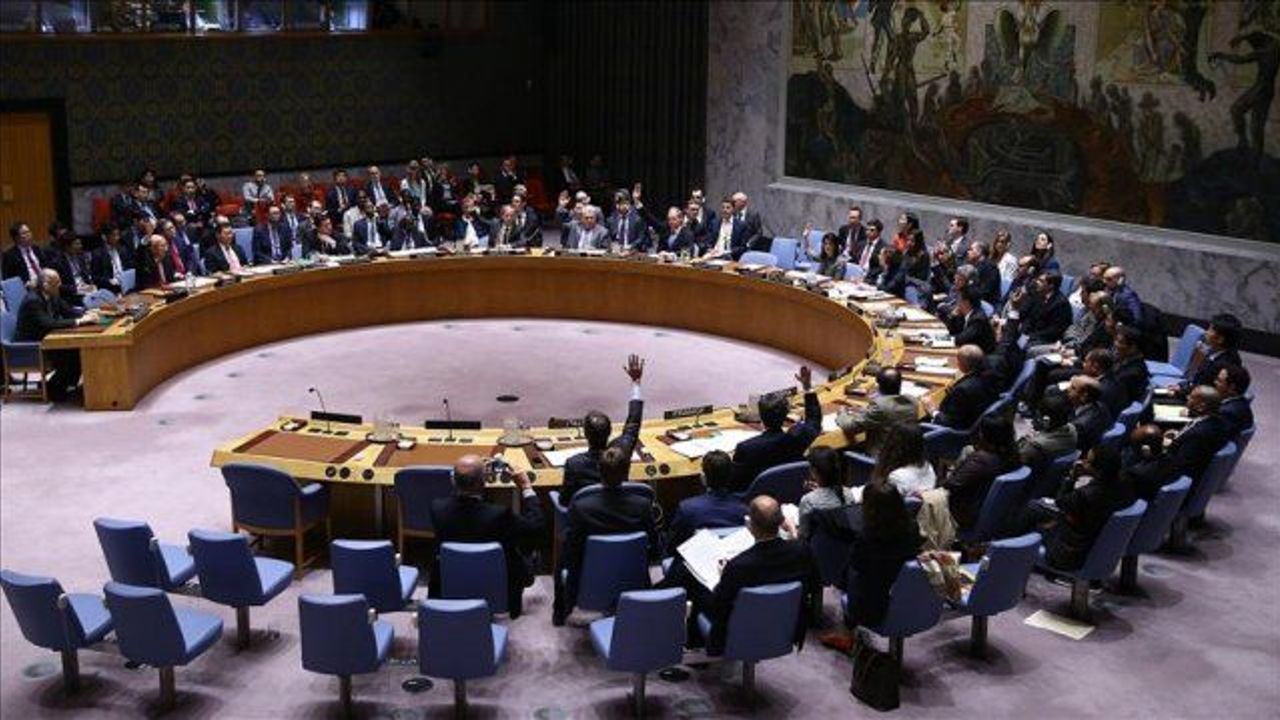Russia vetoes UN resolution on Syria chemical attack
Russia on Wednesday shot down a UN Security Council draft resolution that would have condemned a chemical weapons attack in Syria that killed scores earlier this month.

The draft was a slightly revised version of a text penned last week by the U.S., the U.K. and France. It expressed support for a UN-sponsored fact-finding mission and urged all parties to cooperate and provide full access to the affected site.
China, Kazakhstan and Ethiopia abstained from Wednesday's vote, while Russia ally, Bolivia, voted against the measure.
U.S. Ambassador to the UN Nikki Haley criticized Russia for vetoing the resolution “that would have helped promote peace in Syria”.
She said it was Russia’s eighth veto to shield the regime. “If the regime is innocent, as Russia claims, the information requested in this resolution would have vindicated them,” she said.
“You have no friends in the world after your horrible actions,” Haley told the Syrian government. “Your excuses will no longer be heard.”
U.K. envoy Matthew Rycroft said the result means Russia “cannot possibly claim any more that it opposes the use chemical weapons.
“How can anyone look at the pictures of lifeless children and choose to veto a resolution that condemns this attack?” Rycroft said of the “indefensible” Russian vote.
Rycroft said the result was even more regrettable because Russia was “the architect” of the 2013 agreement to destroy Syria’s chemical weapons stockpile — a move that followed a chemical attack in Ghouta that killed more than 1,300 victims.
British Foreign Minister Boris Johnson expressed his disappointment in the vote with a statement that said Russia’s latest move "puts Russia on the wrong side of the argument," but Moscow now faces a choice.
"It can continue acting as a lifeline for Assad’s murderous regime, or it could live up to its responsibilities as a global power, and use its influence over the regime to bring six long years of failed cease-fires and false dawns to an end," Johnson said.
He added: “We stand ready to work together and I will be talking to my G7 partners in the coming days about how we can continue to strive for a political solution that brings an end to the suffering of the Syrian people.”
France was “dismayed by the outcome” of the vote, according to Paris’ ambassador Francois Delattre.
“We have once again failed to uphold and embody the fundamental values we are supposed to,” Delattre told the Council, adding that France would not accept impunity for the Bashar al-Assad regime.
Those sentiments were echoed by French President Foreign Minister Jean-Marc Ayrault who described Russia’s decision as “incomprehensible and unjustifiable” as he urged the international community to “face up to its responsibilities and to take the necessary decisions to put an end to the Syrian tragedy through a political solution. For its part, France will not resign itself”.
Russian deputy envoy Vladimir Safronkov criticized the draft resolution for apportioning blame prior to a full investigation.
The text does not identify responsibility but puts the onus on the regime, urging it to share detailed military information relevant to the attack in time and location.
Safronkov said approving the resolution would have meant legitimizing the U.S.’s retaliatory strike on a Syrian air base Tuesday that he said was “in violation of international norms”.
The Russian envoy added that Damascus “displayed openness and readiness” to cooperate with the investigation and the international community should take up the regime on its offer.
He also claimed that the 2013 initiative to dismantle Syria’s chemical weapons arsenal, which averted U.S. military action against the regime, was “carried out successfully”.
The Khan Sheikhun attack April 4 killed at least 100 people and injured more than 500, according to the Syrian opposition’s health minister.
U.S. President Donald Trump ordered a strike two days later against the Shayrat Airfield that American officials believe was used to launch the chemical weapons attack.
The strike raised tensions between Washington and Moscow that were already strained due to Russia’s alleged meddling in 2016 U.S. presidential election.
U.S. Secretary of State Rex Tillerson on Wednesday was on an official visit to Moscow where he and Russian Foreign Minister Sergey Lavrov reaffirmed the two countries’ joint fight against terrorism.
Anadolu Agency







